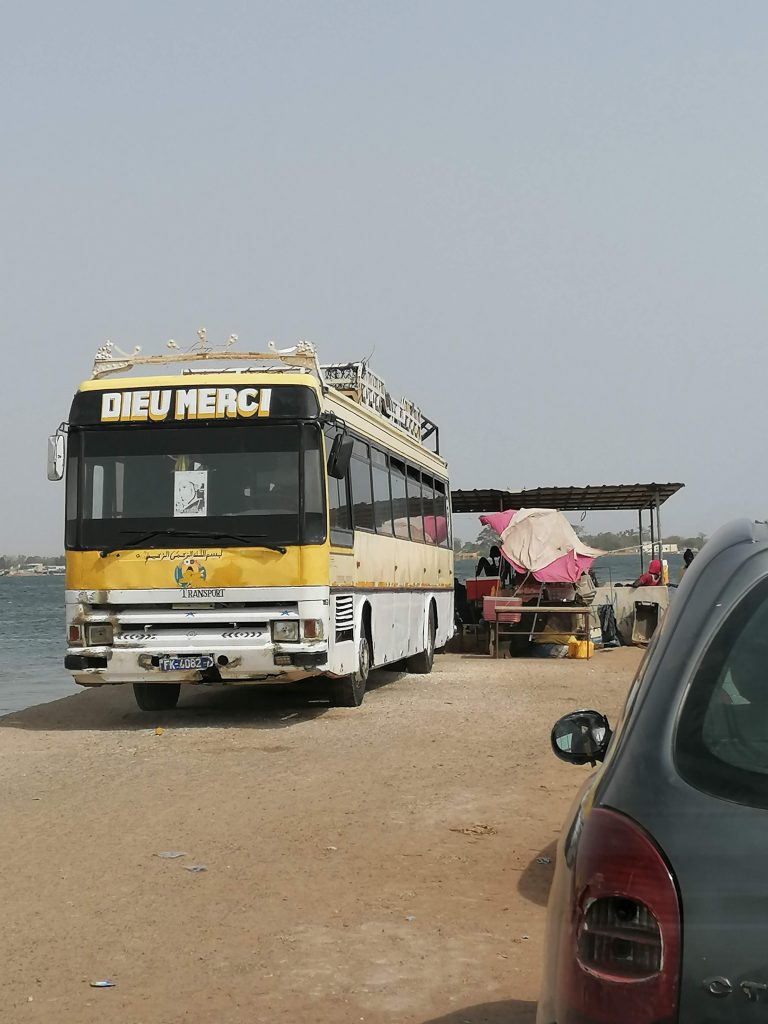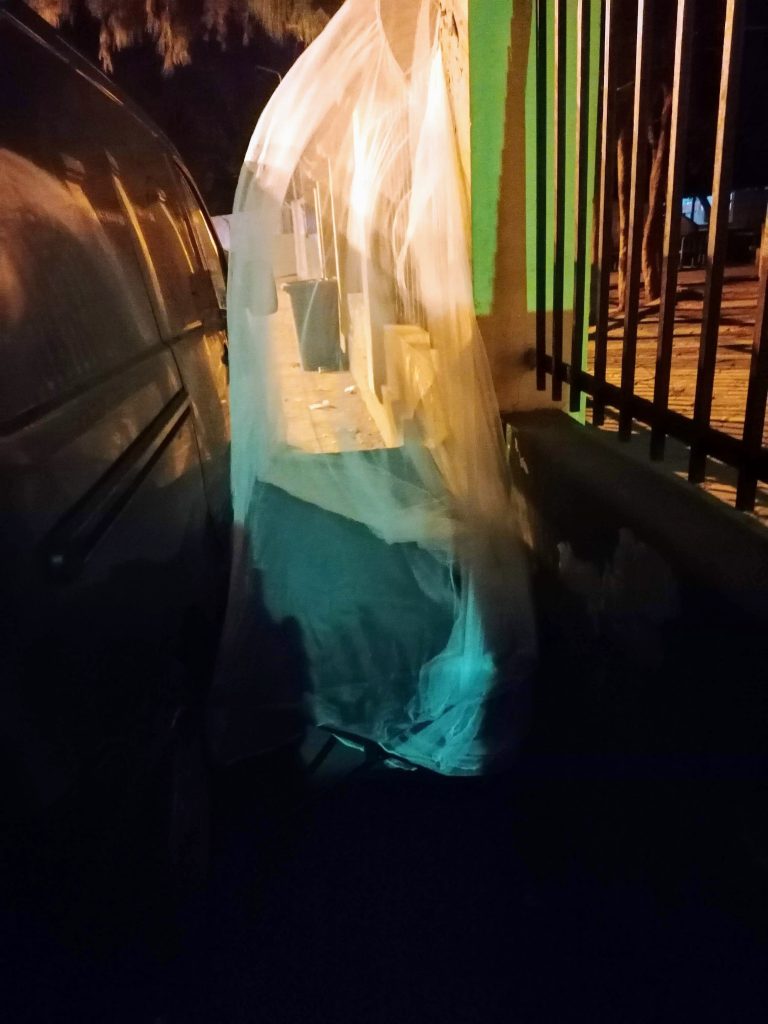5 min read
Friends, this was the least we were prepared for a border crossing. First, all we knew was that we needed to get to Karang which was the border town from Senegal into The Gambia, and then take a ferry from Barra to Banjul, the capital. And second, we left the hotel in Dakar at 12 noon. Which is honestly not the best because border days can be so unpredictable with regards to time. We first drove to Foundingne but when we got there, we realized there was a ferry that we did not know about. The ferry had just left too, so we had to wait for it to get back and we had no idea how long this would take. There were about eight cars ahead of us and after asking, we found out that only eight cars could get on. So even if we waited we might not have made it on, especially considering that one of the vehicles in line was a bus. We checked Google Maps and found that we could make it to Karang via another town called Kololi, though that would take another hour. We decided to take it. It was a bit of a setback but on our way to Foundingne we had given a lift to a kind old man, perhaps that was the main reason for the universe to send us this way and not to cross over. The old man made it on the ferry we missed by the way, ah, the joys of traveling without vehicles.

Some Senegal drama
We got to Karang finally at 7pm. It was a very busy centre with many small kiosks, cars parked, and just so many people. We had the passavant for Senegal up till the 25th of July and this was the 18th. So the plan was to get into The Gambia, stay up till the 22nd, then drive out back into Senegal and to Guinea Bissau before the passavant expired. Thomas went to customs and explained this. Then we went into immigration to get our exit stamp. The officer was shocked that I was in Senegal without a visa. We politely explained that Kenyans should be able to get into Senegal visa free as we had confirmed earlier at the Diama border. He called us into a back room, where two other officers put their two cents into the mix. Finally a man that seemed to be in charge came over. He said that if we get into Senegal through Dakar Airport, then it is visa free, but that the laws at the border are different; if a Kenyan enters through the land route then they need a visa. He said this as he checked a booklet that had information on all the visa requirements for foreigners visiting Senegal. And indeed, on the first page that had the list of countries that could get into Senegal visa free, was Kenya. Either way, Thomas and I agreed that I should get a Senegalese visa once we got into Banjul just to avoid the hassle at the next two Senegal borders. It was 8pm by this time.
Made it into The Gambia
I was so glad that I had already gotten my visa for The Gambia. I was beginning to understand that I should take ‘visa on arrival’ with a grain of salt. First stop, customs. The officer checked out the passavant for Senegal, and immediately told us that he could not give us a temporary import permit for The Gambia because we did not have a Carnet de Passage. He informed us that we would have to spend the night at the border until the morning where he would have to escort us to Banjul which is where they could give us the temporary import permit. The next hour was spent doing nothing really. Standing around, checking for the guy, trying to engage other officers who all said they could not help us. Until finally the man in charge came. We explained the situation to him, after which he instructed another officer to administer the permit. We paid 5000 CFA for this service, a service which should have been free. We had researched that for a stay of less than 25 days in The Gambia, foreign vehicles could get a temporary import permit for free. 9pm now. We went to the next office, where we were to get an entry stamp for the permit and our passports. The passports worked out fine. But the next hour was spent in a back and forth with an officer who insisted that we pay 2000 CFA for the entry stamp on the permit. A service again that should have been free. We asked for a receipt, the officer said that the stamp was the receipt. Three other officers told us that we should just comply because we would miss the ferry if not and they knew that this other guy would not let it go. We parted with 250 Dalasi at this point. 10pm.
Some Gambia Drama
Finally into The Gambia. We drive down to the port for about 20 minutes and just at the entrance, an officer comes by and asks us to go into the nearby police post. Instead of going into the main office, he takes us to a back office. There are two other officers in there that looked more senior. The first one says to us that he has been following us behind on a motorbike because he waved us down at a checkpoint and we didn’t stop. The second one asks why we did that. We quickly apologize and explain that we didn’t do it on purpose, that of course we understand the importance of these checkpoints and that we would have stopped had we seen him. A moment of silence then they let us go. The officer from the port escorts us into another back back room (yes, that double back was on purpose because there seems to be numerous of them). Another conversation about how it is against the law to not stop when an officer waves you down, and us apologizing for the same. Some silence. Then he let’s us go. 11pm.
Our first time spending the night in the van
We got back to the port just as the last ferry was leaving. Note to land travelers going on this route: The first ferry comes at 6am and the last one leaves at 11pm. The staff there were kind enough to let us buy the ticket for the ferry (250 Dalasi for vehicles, and we have read that it is 25 Dalasi for passengers) and park the car inside where we spent the night. It was not the most comfortable of situations but at least we were safe. We tried to sleep outside with a mosquito net tied to a wall and on one of the mobile beds Thomas had bought. It didn’t work out because there were too many bugs and mosquitos. So we ended up sleeping in the car. Unbeknownst to us, this would be the first of many times that we sleep in the car. The second time being when we would cross over from Guinea into Sierra Leone, and the third time when we would cross over from Liberia into Ivory Coast. Exciting times indeed!

